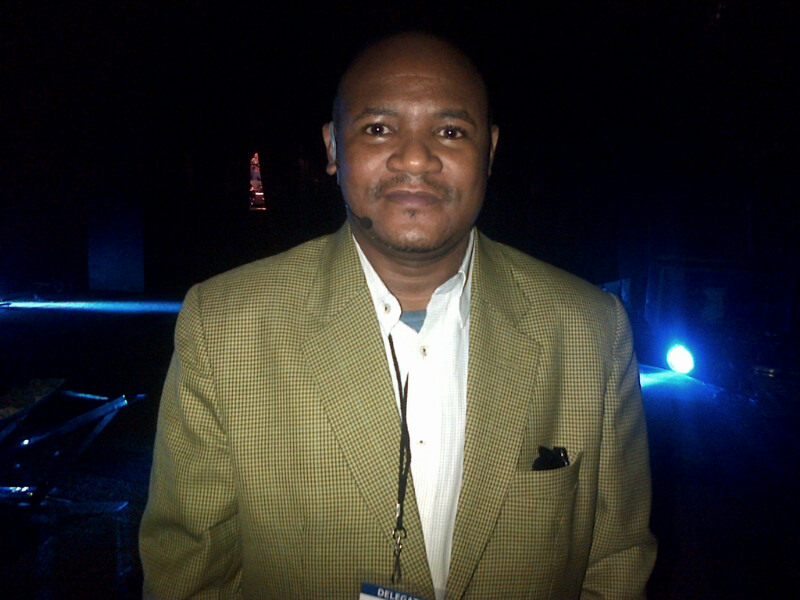If you are the type that attend international meetings, you will surely notice that African countries always have the highest contingent of participants, many hardly make it to the meeting venue as they are sighted shopping in the streets of New York and Geneva during such meetings. The few that make it to the venue either sleep or just listen without making any meaningful input or presentation. The last World Health Assembly in June 2014 in Geneva had witnessed over 40 Nigerians on a wasteful ventures with government tax payer’s money and nothing to show out of the meeting. It is in Africa that we record unacceptable maternal and child deaths yearly, scanty budget investment to health sector, low contraceptive prevalence rates, more women deliver at home than facilities because they are mere consulting clinics with poor infrastructure, stock out of essential drugs and poorly motivated human resources. The Millennium Development Goals concerning health will not be achieved in many African countries.
The world promises new set of sustainable development goals to start in September 2015. What is Africa’s contribution to that? Are we waiting for the donor funds committed for the new goals to spend? The just concluded 69th session of the UN General Assembly in New York had heightened positive momentum for women’s and children’s health. It is imperative to ask where Africa is in all the innovative plans and announcements as itemised below.
- Accountability Breakfast. Ministers, ambassadors, senior public officials, and civil society representatives gathered on September 21 for the now traditional accountability breakfast meeting hosted by PMNCH, Countdown to 2015, the independent Expert Review Group (iERG) and WHO. Four of the key accountability annual reports were launched and distributed: the 2014 PMNCH Report, the 2014 iERG 2014, this year very much focusing on a vision for women’s and children’s health in the post-2015 era; the 3rd accountability progress report, highlighting progress towards the implementation of the recommendations of the Commission on Information and Accountability and the latest countdown to 2015 report, fulfilling the Health Agenda for Women and Children.
- Preventing and responding to gender-based violence in emergencies. At a high level event attended by Ministers from the UK, Japan, Sweden, Uruguay, and Papua New Guinea, Canada amongst others on protection from gender-based violence (GBV) in emergencies, US Secretary of State John Kerry announced an additional $12 million to strengthen prevention and response to gender-based violence. This was in addition to the $10 million pledged by the US last year to the Safe from the Start.
- Early Childhood Development: translating the evidence into action. President Michelle Bachelet of Chile and First Lady of Colombia María Clemencia Rodríguez de Santos joined UNICEF Executive Director Tony Lake and WHO’s Director-General Margaret Chan and others as they described the programmes in their respective countries to improve coverage and equity on a range of services and interventions for children, not only through health sector, but also others such as education, social protection, etc. – to allow them to reach their full potential.
- Climate change: fast action is needed to achieve, co-benefits in health, especially for women’s and children’s health. At UN Secretary-General’s Climate Summit, WHO and ILO hosted a panel on taking fast action on climate change to reduce the serious and growing burden of health risks from extreme weather events and changing patterns of disease – and also reap huge health “co-benefits”, especially for women and children, often the ones suffering the most from the impact. Asked how the health sector could help lead the transition to reducing climate change
- Keeping commitments for Women’s and Children’s Health beyond 2015. The general assembly brought important announcements in terms of financial commitments for women’s and children’s health. US$4 billionwas announced at the major UN Secretary-General’s Every Woman Every Child event on Thursday September 25th – comprising of direct contributions from Norway and Canada (0,8 billion), and leveraged resources from the World Bank (3,2 billion in expected IDA grants) and the US. These funds will be channeled through the new Global Financing Facility (GFF) for women’s and children’s health, to be hosted by the World Bank and operational by UNGA 2015.
- Building on Canada’s earlier commitment of US$3.5 billion for women’s and children’s health in May this year, Swedish Minister of International Development Hillevi Maria Engström took the opportunity at the H4+ breakfast event on September 23 to announce that Sweden expects to contribute US$2.2 billion to RMNCH from 2010-2015, with US$400 million to accelerate progress toward MDG 4 & 5 and with a special focus in Sexual and Reproductive Health and Rights.
- A €15 million fund, Amplify Change, was announced on Monday by the Danish and Dutch governments, along with the David and Lucile Packard and William and Flora Hewlett foundations. The fund will support small civil society organizations across sub-Saharan African and South Asia working to defend sexual and reproductive health and rights of young people, especially girls.
- Over $69 millionwas pledged by both private and public entities for innovations for maternal and child health at the 4th Annual Every Woman Every Child Private Sector Lunch, held on Thursday 25 September. Commitments towards the Global Strategy for Women’s and Children’s Health were announced from: Philips, Medtronic Foundation, Medela, General Electric, Reliance Foundation, Novo Nordisk, BSR-GAIN, Royal DSM, GSK, GSMA, International Federation of Pharmaceutical Wholesalers Foundation and Nike Foundation.
A concluded question is; where is Africa in all these fast and innovative moves?
This article is 1st published in Daily Trust Newspaper of 14th Oct 2014 by Dr Aminu Magashi Garba, Coordinator Africa Health Budget Network (AHBN). He can be reached at healthweekly@yahoo.com and followed @HReporters


